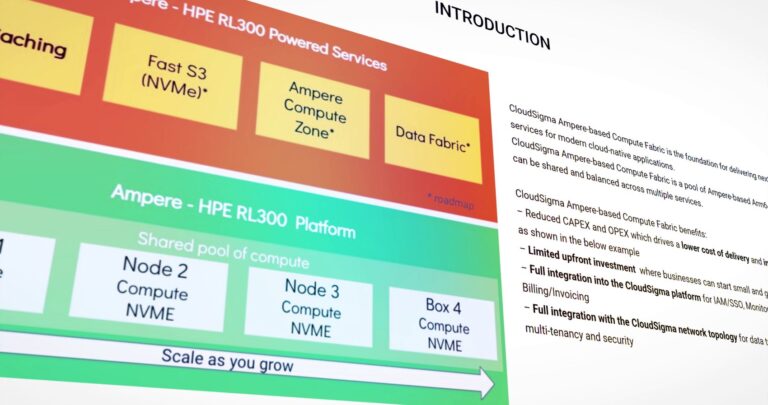Data experiences revolve around providing meaningful insights that align with human behaviour and decision making.
That’s why it is crucial for data experiences to be accessible, relevant, and valuable to every person within an organisation. Fostering curiosity is an important trait for entrepreneurs, and data experiences offer the opportunity for business leaders to ignite curiosity in their workforce, unlocking fresh perspectives and innovative thinking. Enhancing the way people interact with data can improve their capacity to drive meaningful impact and a company’s ability to leverage data effectively across the organisation, including company culture to overall results.
There is a growing trend where employees can’t make an impact on their business or reach their full potential due to the sheer number of tools and technologies at their disposal and knowing what are the right ones. In fact, 58% of workers say their need for tech has increased in the last 5 years, but their access to tech tools isn’t keeping up. Employees are unable to quickly make smart decisions when they lack the appropriate technology to access the necessary data.
Challenges leaders of today are tackling
The pandemic compelled organisations to reimagine their work methods, leading to a rapid adoption of cloud systems as we transitioned towards supporting hybrid work models. This widespread reliance on cloud-based systems has provided an exceptional opportunity for business intelligence platforms to revolutionise the way data is gathered and analysed. While cloud and BI systems offer significant advantages in maximising intelligence through data, they also present a new challenge.
A recent trend has emerged where employees are not performing at their full potential due to feeling overwhelmed by the multitude of modern tools and technologies available to them. The introduction of tools like cloud and BI systems should align with an organisation’s ecosystem to streamline business processes. However, the reaction of employees to these new tools varies, as some may feel excited while others may feel overwhelmed, depending on the relevance of the tool to their specific roles.
This poses a significant challenge for business owners who must strike a balance between adopting progressive technologies and introducing meaningful tools that positively impact their teams’ workloads and overall company culture. The selection of tools for integration throughout the organisation should align with the existing framework and data ecosystem. It is common to feel enthusiastic and explore different tools simply because they are new, but this doesn’t always lead to improved productivity. In fact, such experimentation often results in wasted time and resources, as employees typically revert back to their familiar tools and methods.
Main priorities for companies today
In recent years, we have faced unprecedented challenges that have highlighted the unpredictability of the future. Consequently, it is crucial for organisations to maintain agility and possess the capability to adapt to frequent changes.
Traditionally, organisations have focused on building end-to-end data solutions and models. End-to-end tools often have rigid structures that can hinder business functions and impede organisations from adapting quickly to rapidly changing environments. However, to enhance flexibility, companies should prioritise constructing end-to-almost-end solutions. This approach enables them to respond swiftly to changes within the technological landscape with minimal disruption.
What makes a great data experience and why are they important for business?
Creating a great data experience means having the ability to access pertinent data at any time and from any location. This entails having an ample amount of data to provide meaningful insights, while also ensuring that data access is restricted to what is necessary. These experiences have the potential to greatly minimise manual labour and significantly reduce the amount of additional work required.
The relevance of data varies for each individual within an organisation. As an example, field offices dedicate several hours each week to compile data, which is then sent to headquarters where additional time is spent on overall data compilation. By automating data processes, it will liberate numerous hours throughout the entire organisation. Most importantly, there is greater real-time visibility into the operational aspects of the business.
Similarly, the speed and method of accessing data will differ among employees. For example, a hybrid worker or frequent traveler may prefer accessing relevant data on a mobile device, while an office-based employee might opt for a laptop.
Organisations and individuals equipped with agile and influential data experiences have the potential to become influential business leaders. Leveraging the power of data can enhance both an employee’s capacity to make an impact and a company’s ability to access and act upon data for meaningful organisational change. However, it is vital for great data experiences to consider the distinct needs and skill sets of each individual, ensuring that everyone feels empowered regardless of their level of data fluency. Unleashing the power held within data will streamline the decision-making process, enabling everyone in the business to access and act promptly and confidently on data. This empowerment will drive impactful outcomes and facilitate positive transformations across the organisation.
About the Author
Ben Schein is Senior, Vice President of Product at Domo. Domo transforms business by putting data to work for everyone. Domo’s low-code data app platform goes beyond traditional business intelligence and analytics to enable anyone to create data apps to power any action in their business, right where work gets done.
Featured image: ©your123


